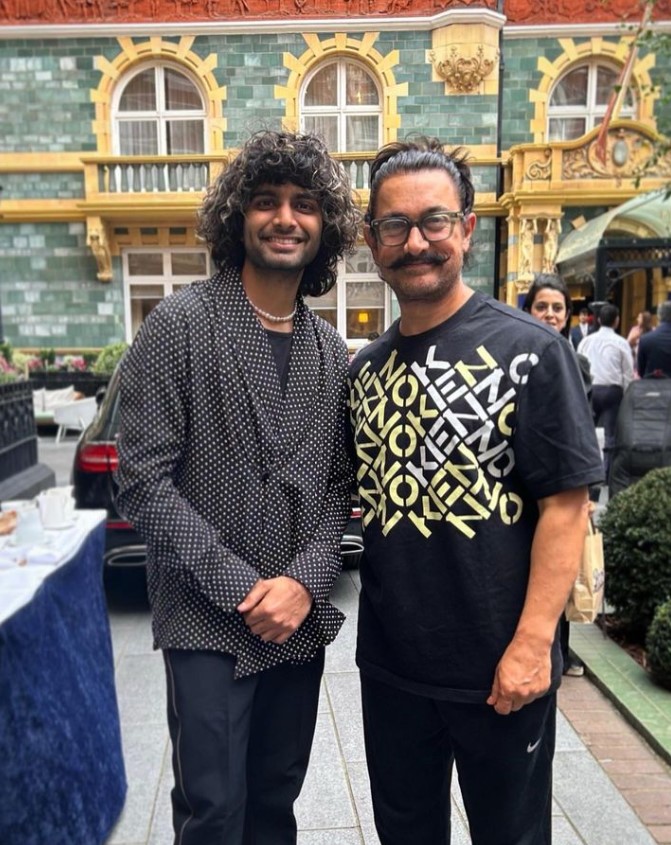(August 15, 2024) “In the midst of all these riots in London, we still managed to get Indians and Pakistanis to sing together for the 78th Independence Day,” the UK-based singer Vish shared with his fans, posting a video of people grooving to the tunes of Maa Tujhe Salaam. In another video that he shared, the Bollywood busker mentioned, “When Indians and Pakistanis sing together in London, ‘Jai Ho‘. Let’s share this video to spread love and unity. We need each other in these hard times.”
Anti-immigration protests and far-right riots have been occurring in England and Northern Ireland since 30 July 2024. Despite these challenges, as the countdown to the Independence Day of India and Pakistan began, Vish managed to bring smiles to the faces of the diaspora.
View this post on Instagram
Last year, around this time too, his video of patriotic songs on the streets of the United Kingdom in honour of the 77th Indian Independence Day had captured the attention of social media users worldwide. The mesmerising performance was widely shared and praised, earning the artist immense love, admiration, and popularity.
Melody on streets and stage
Popular for his engaging performances, the UK-based singer has earned appreciation from artists like rapper Badshah, playback singers Ash King and Diljit Dosanjh, and anchor/actor Maniesh Paul, who have sung alongside him during his street performances in the UK.
Vish’s social media following boasts of his widespread appeal, with over 523,000 followers on Instagram and 351,000 followers on YouTube.
Apart from busking, the singer has also performed at the opening of Vishal & Shekhar concert at Wembley Arena in London and has appeared at Javed Ali’s show at Indigo at The O2.
The busker whose street performances have taken him all over the UK wishes to make a mark in Bollywood as a playback singer someday. “It does not matter how slowly you go as long as you do not stop,” believes the Arijit Singh fan.

Vish with Aamir Khan who was part of the audience at one of his shows
Punjabi boy in the UK
Vishal Mattu hails from Punjab and took up singing on the streets (busking), a common practice in the United Kingdom, after being encouraged by his girlfriend. From singing along to English songs by popular artists like Justin Bieber and Drake, back home in India to busking with Bollywood classics and chart-toppers in the UK, Vish has come a long way with his guitar and stereo.
“I always wanted to be an English language singer,” he shared, naming Harry Styles among his many inspirations.
It was only after gaining appreciation for his Bollywood songs that he developed a passion for them. “I have become more interested in Bollywood beats after I began busking in the UK. I used to sing English songs, and people began coming up to me on the streets requesting Bollywood music. I did sing a few and got excellent feedback thereafter,” he shared talking about his journey.
View this post on Instagram
UK’s first Bollywood busker
Since 2022, Vish has been gaining recognition and has branded himself as the UK’s first Bollywood busker. He cherishes the precious moments of passers-by singing and dancing along to his melodies, often playing late-night, kicking off at 11 pm and going on until 3 am over the weekends.
Even though the English people don’t understand the wordings of Hindi songs, they still enjoy the melodies, and a lot of them recognise songs from Shah Rukh Khan movies, he shared. Their spontaneous gestures are something that the singer cherishes the most.
However not all performing endeavours end on happy notes. Like other street performers, he has had some nasty encounters too. “Well, there will always be those who dislike you and can be harsh, but you must remain strong. You must understand how to handle the circumstances without engaging in conflict. I have had a lot of unpleasant situations in these two years, but I never got into a fight.”
The 28-year-old has also released a music video titled ‘Wait’ in which he has sung a Punjabi song composed and written by himself. Another of his music videos is set to be released soon. While his wait for playback opportunities in Bollywood continues, the singer is hopeful of creating a mark someday with his creative ideas, love songs and club music in India’s film industry.

